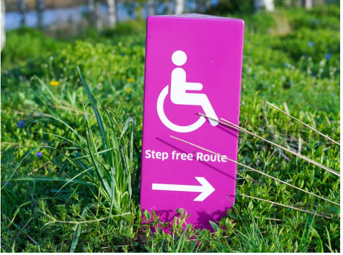With the increase in Singapore’s aging population, there is a need to address the mobility problems faced by residents. The Barrier-Free Access (BFA) project aims to help the elderly and other BFA users to identify BFA paths and transportation routes, thus promoting an inclusive society for the seniors and wheelchair users.
SmartBFA is a smart solution that aims to find routes without any barrier in public housing heartlands. The application will also be able to predict the shortest possible routes for wheelchair-using residents to get around and identify obstacles along the routes. The project will make use of crowdsourced data from resident volunteers to locate obstacles and barrier-free access routes in more than 400 blocks starting with Bukit Panjang. It will roll out to other residential areas at a later stage.
There are two phases in SmartBFA:
Phase I: Devices will be retrofitted on wheelchair participants, to passively collect data on path accessibility (e.g., bumps, obstacles, slopes, etc). This is to find the gaps so as to improve the accessibility of amenities and obstacles in Bukit Panjang town.
Phase II: Sensor data collected from wheelchair participants will be used to create maps for barrier-free access in Singapore. This is also to find the shortest possible route when they wish to move from point to point within the town without encountering any barriers.
Singapore Data Science Consortium (SDSC) will work closely with Singapore Management University (SMU) and Trampolene to provide data analytics solutions for SmartBFA. The tasks include: (a) Correcting GPS position by fusion of 9DOF IMU sensors, (b) Detection and quantification of road slope, uneven surface, and (c) Digital map construction using smoothened GPS data, and barrier information.
This study received S$700,000 in funding from the Tote Board earlier this year.
Project Title: Identifying Barrier-Free Routes by Sourcing and Analyzing Anonymize Daily Travel Pattern For Wheelchair Users
Done By: Trampolene, Singapore Management University (SMU) and Singapore Data Science Consortium (SDSC)
Contact Person: Asst Prof Tan Hwee Xian, Assistant Professor of Information Systems (Practice), SMU and Lee Chengkai, Research Assistant, SDSC
This research is supported by the Tote Board under its Enabling Lives initiative and the National Research Foundation, Prime Minister’s Office, Singapore under its Industry Alignment Fund (Pre-positioning) Funding Initiative.

